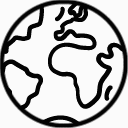

In 2017, when H&M Group issued its target of becoming climate positive, the partnership started to search for projects that could support a transition to renewable energy and climate resilience. A pilot was initiated in Eastern Plains of Cambodia with the focus to promote sustainable sourcing of energy materials.
Overall goal: To design a landscape scale investment programme in Cambodia that contributes to SDG goals by promoting sustainable sourcing of energy materials and supporting the resilience of ecosystem services.
Cambodia was chosen for the pilot project as it is a key market for textile manufacturing. The pilot was initiated in the Cambodian Eastern Plains landscape, as it is an important area for providing critical ecosystem services such as carbon storage, nutrient and sediment retention and water yield protection. It is also home to a variety of endangered species.
In 2018, when WWF and H&M Group initiated the SCALE program, the aim was to address some of these challenges:
- Materials. Today’s wood supply chain is not traceable and often illegally sourced due to a myriad of actors that blur the transparency line.
- Deforestation. Cambodia ranks among the highest deforestation rates in the world as a result of infrastructure and agri-business development, illegal logging and poaching. Wood fuels used by H&M suppliers may contribute to this problem.
Governance. Cambodia has limited resources to address climate and deforestation challenges and to enforce environmental regulations.
Insights of the program and next steps
The SCALE programme was initiated in 2017 and finalised in 2019. The project established important insights around renewable energy, reduction of carbon emissions, and the need for promoting sustainable sourcing of materials as well as to support biodiversity protection and ecosystem resilience.
Next step of the pilot projekt:
When the SCALE pilot project was finalised two years later, it gave birth to an AI-enabled technology project, that is a joint venture by H&M Group and WWF in Cambodia, still under development 2021/2022. The aim with this project is to with AI help identify illegal wood at the factory gate. The Wood AI app aim to help bring traceability to the garment industry’s firewood consumption and to support sustainable wood supply-chains development.
FACT about the location of the pilot project:
Cambodia’s Eastern Plains landscape covers an area of over 30,000 square kilometres across four provinces (Ratanakiri, Mondulkiri, Kratie and Stung Treng) and forms the largest block of tropical forest in Southeast Asia. WWF’s conservation efforts are concentrated in two protected areas in the Mondulkiri province – Mondulkiri Protected Forest and Phnom Prich Wildlife Sanctuary. These protected areas contain a large diversity of habitats and support populations of endangered species, including the asian elephant, leopard, banteng, siamese crocodile and eld’s deer, as well as several endangered large water bird and vulture species. The rich biodiversity of the protected areas is already under threat from uncontrolled and illegal logging, hunting and illegal wildlife trade, land clearance for agricultural purposes and settlements, and other unsustainable uses of natural resources.
